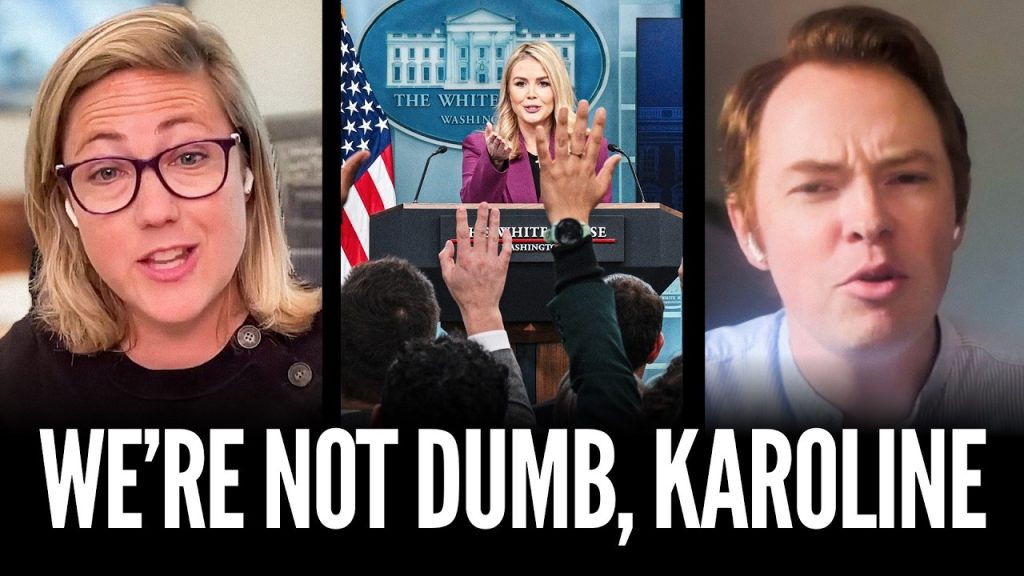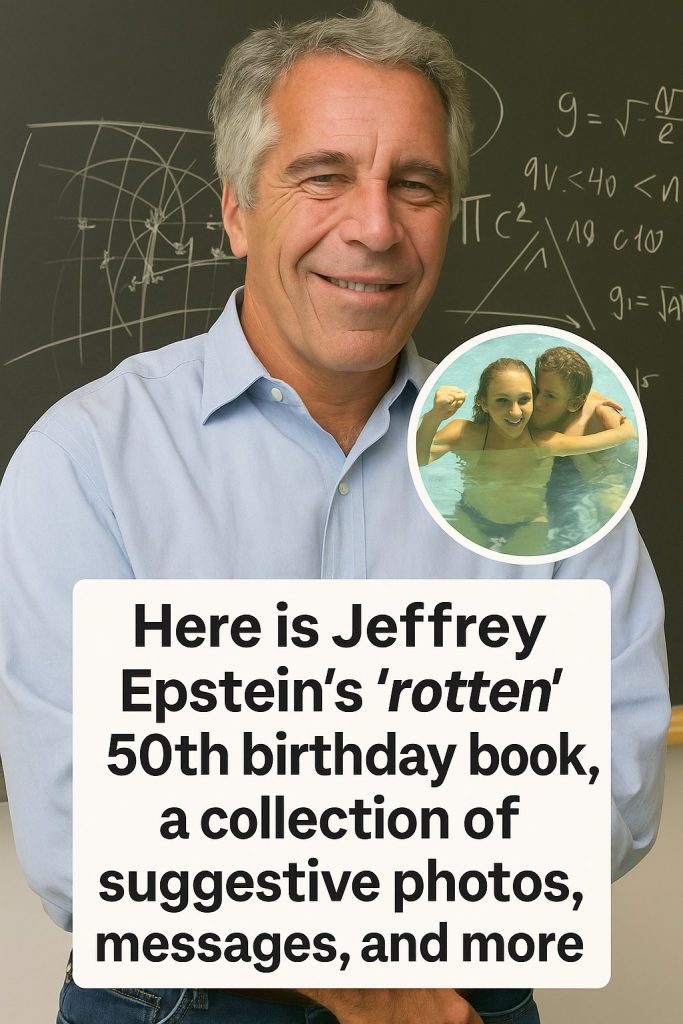In a recent discussion regarding a press conference held by Carolyn Levit, political commentator Sarah Longwell and her colleague Andrew Edgar tackled the contentious remarks made about former President Donald Trump’s alleged connections to Jeffrey Epstein. Their analysis sheds light on how the Trump’s responses have been dismissive of real concerns regarding Epstein’s infamous network, igniting a debate on the implications of such statements.
The video highlights a specific exchange where Levit fielded questions about Trump’s assertions that documents related to Epstein were part of a hoax perpetuated by Democratic opponents. Longwell emphasized the need for a deeper interrogation into such claims, especially given the seriousness of the allegations surrounding Epstein. The dialogue revealed the frustration of critics who feel that the lethargy of the press in pressing for direct answers allows narratives like Trump’s to persist.
At the heart of this discourse is Trump’s characterization of reports linked to Epstein as “opportunistic” attacks by Democrats. He accused figures within the Democratic Party, particularly Rep. Ro Khanna, of fabricating narratives designed to undermine the former President. This framing, as Longwell points out, not only obfuscates the truth but also insults the intelligence of voters who deserve transparency over vague assertions of ‘hoaxes’.
The context of these assertions comes amidst a series of recent revelations and ongoing investigations concerning Epstein and his list of influential associates. Epstein’s death and the subsequent legal inquiries into his financial dealings and the high-profile individuals entangled in his circle have kept the issue alive in the public consciousness. Trump’s reactions, and particularly his attempts to dismiss relevant documentation linked to Epstein’s estate, raise questions about his accountability and the seriousness with which he is taking the matter.
Longwell echoed sentiments that many share: the press has an obligation to hold leaders accountable, especially on issues that affect national discourse and morality. The ineffectiveness of the press conference questioning illustrates a broader challenge in political journalism today—how to confront powerful figures who easily sidestep accountability and label criticism as partisan rather than addressing it head-on.
The conversation also brought into focus the larger implications of misleading narratives in American politics. Longwell and Edgar dissect how Trump’s claims not only stifle productive conversations about accountability for any role he might have played in the Epstein saga but also embolden similar messaging from his followers. This prompts a worrying trend where facts are overshadowed by partisan soundbites, further polarizing the political landscape in the process.
In summary, the political video underscores the necessity for a robust media landscape that both seeks out the truth and demands accountability from all sides. As discussions surrounding Epstein continue to evolve, commentators like Longwell serve as crucial voices advocating for integrity and clarity in political discourse. For the American public, the fundamental question remains: how well can we trust our leaders—and the narrative they choose to promote—when it comes to pivotal issues that must not be minimized or dismissed?



